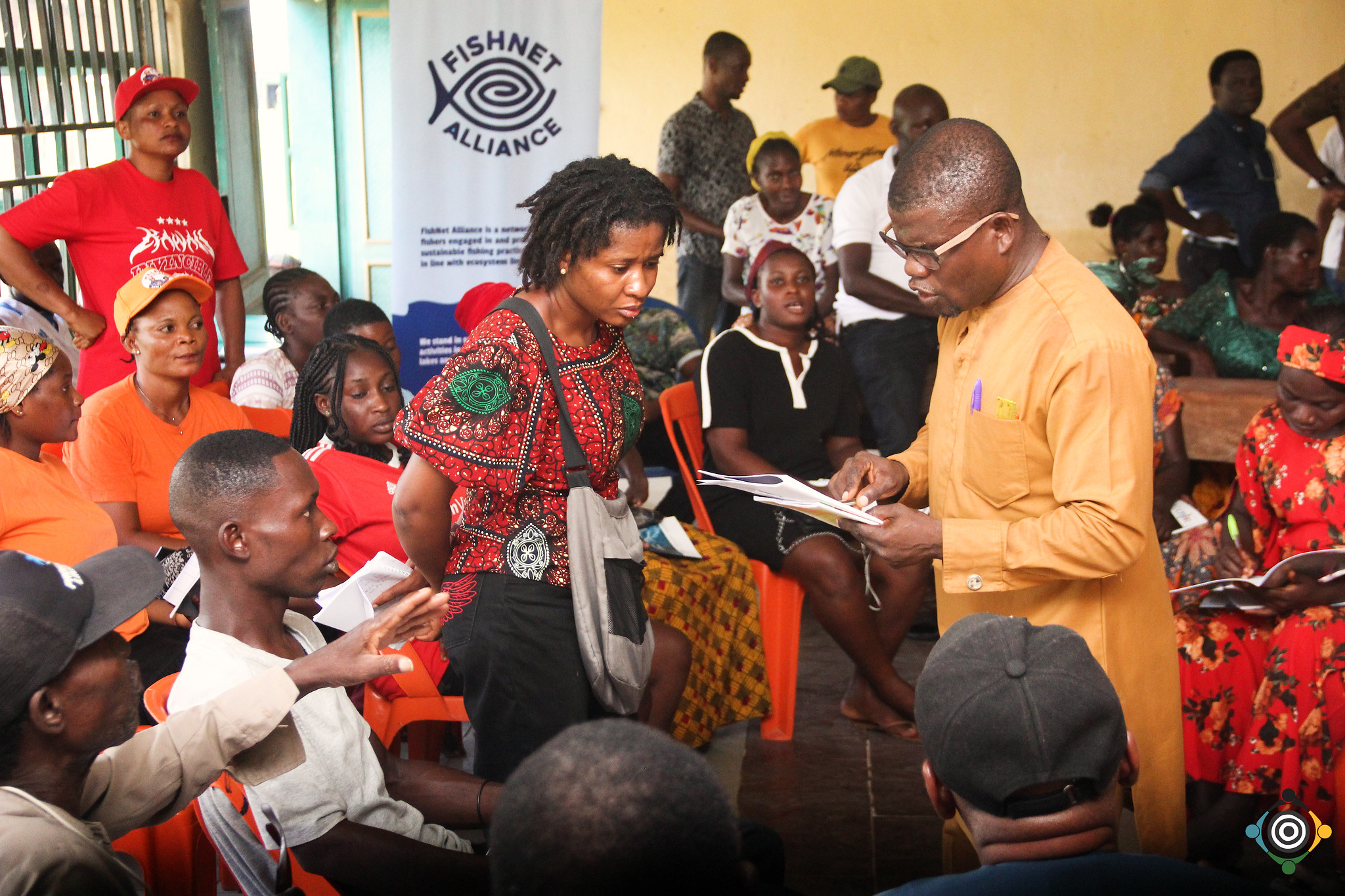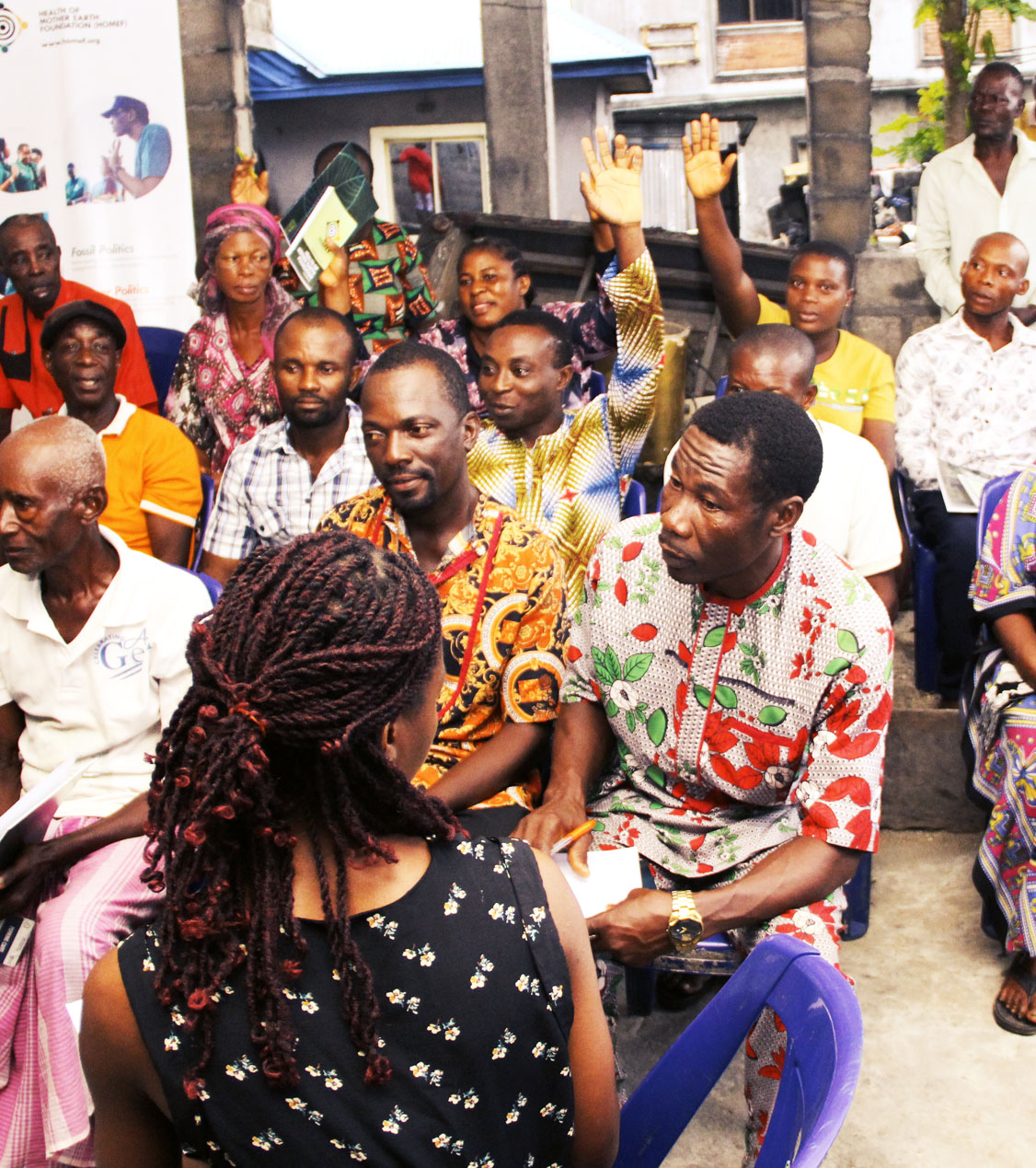Community Dialogues
The Community Dialogues are spaces where the expertise lies with the community while HOMEF team members are the learners. They are spaces for sharing knowledge/competence in environmental monitoring for ecological defense. Resolutions and outputs from these dialogues are used to draw the attention of relevant authorities to the highlighted needs/challenges of the communities.
A CD can be for one community or a cluster of communities can also hold it jointly. Although the major focus is on rural communities, the CD is suitable for all communities irrespective of whether they are urban or rural. They would equally work for workplace, schools and other specialized communities.

The Community Dialogue is a two‐stage exercise:
Stage one: Dialogue
- Identify assets by reviewing the ecological history of the community and comparing that with the present situation.
- Identify changes that have occurred as well as the causative factors (human, corporate, etc.)
- Prioritize areas that require actions
- Advocate for remediation, conservation or protection
Stage Two: Training
- Conduct trainings for ecological monitoring skills
- Set up Community Eco-Defenders and Action Committees
- Actively monitor, report and take necessary actions

The Dialogues are framed in a way that they address the major environmental and livelihood threats faced by the communities.
We run Community Dialogues for:
- Oil field communities – Focusing on pollution and impacts of fossil fuel exploration and exploitation.
- Fishers – our FishNotOil campaign and FishNet Alliance undertake this.
- Forest dependent communities – Against harmful infrastructural projects and forest conversion without prior informed consent.
- Farmers – Promoting food sovereignty, agroecology and opposing genetic engineering of food crops and animals.
- Mining communities – in collaboration with Yes to Life, No to Mining. This focuses on impacts of mining on communities and peoples.
Over the years, we have had numerous sessions of our CDs with many communities across Nigeria. These have covered issues related to oil pollution, fishing, mining, agriculture and forests.
Through these dialogues, HOMEF has helped to amplify the voices of these communities to resist oppression and destruction of their livelihoods. HOMEF was at the forefront of supporting communities in Cross River State to resist the construction of the so-called superhighway which could have led to the destruction of a large portion of the remaining rainforest in that axis of the country.





